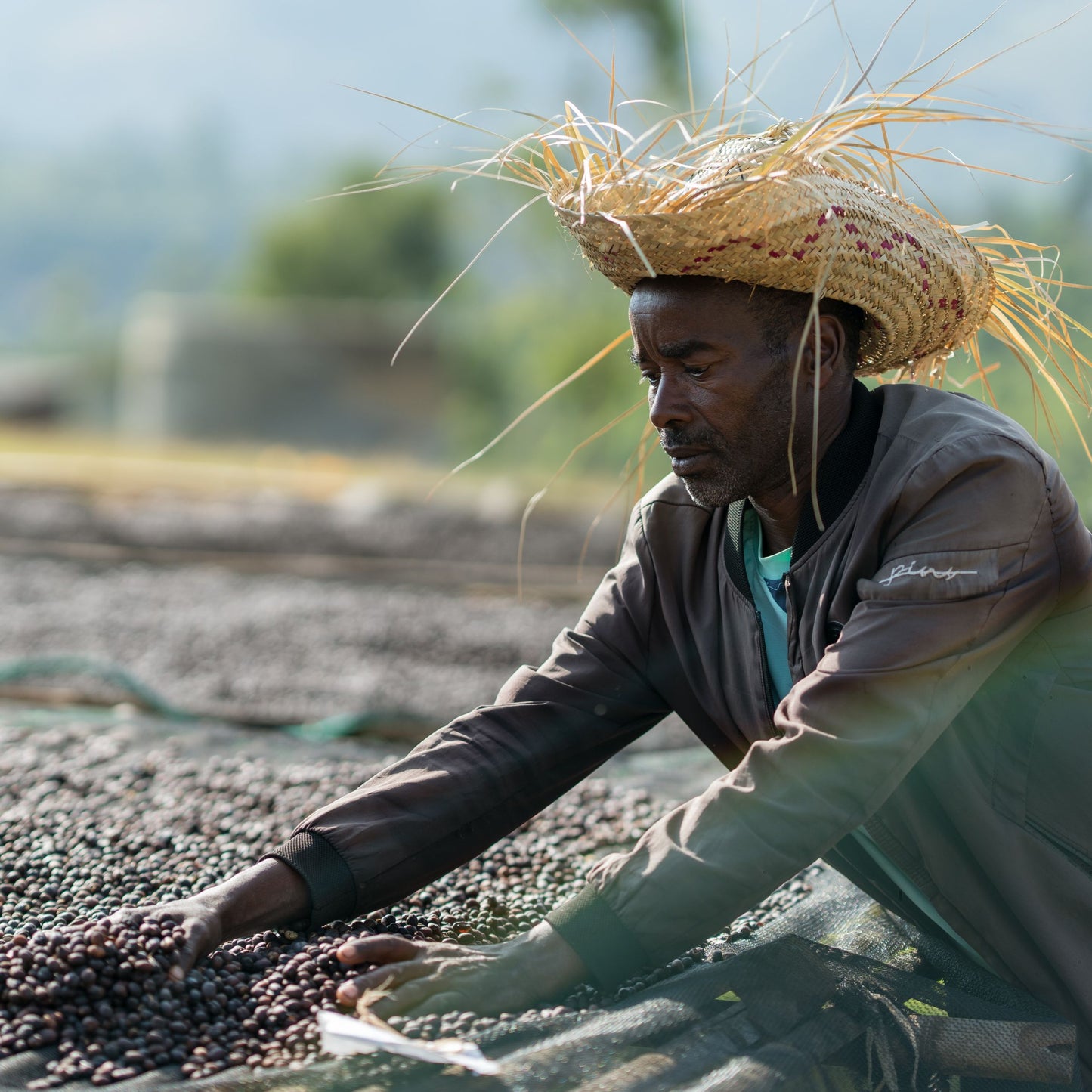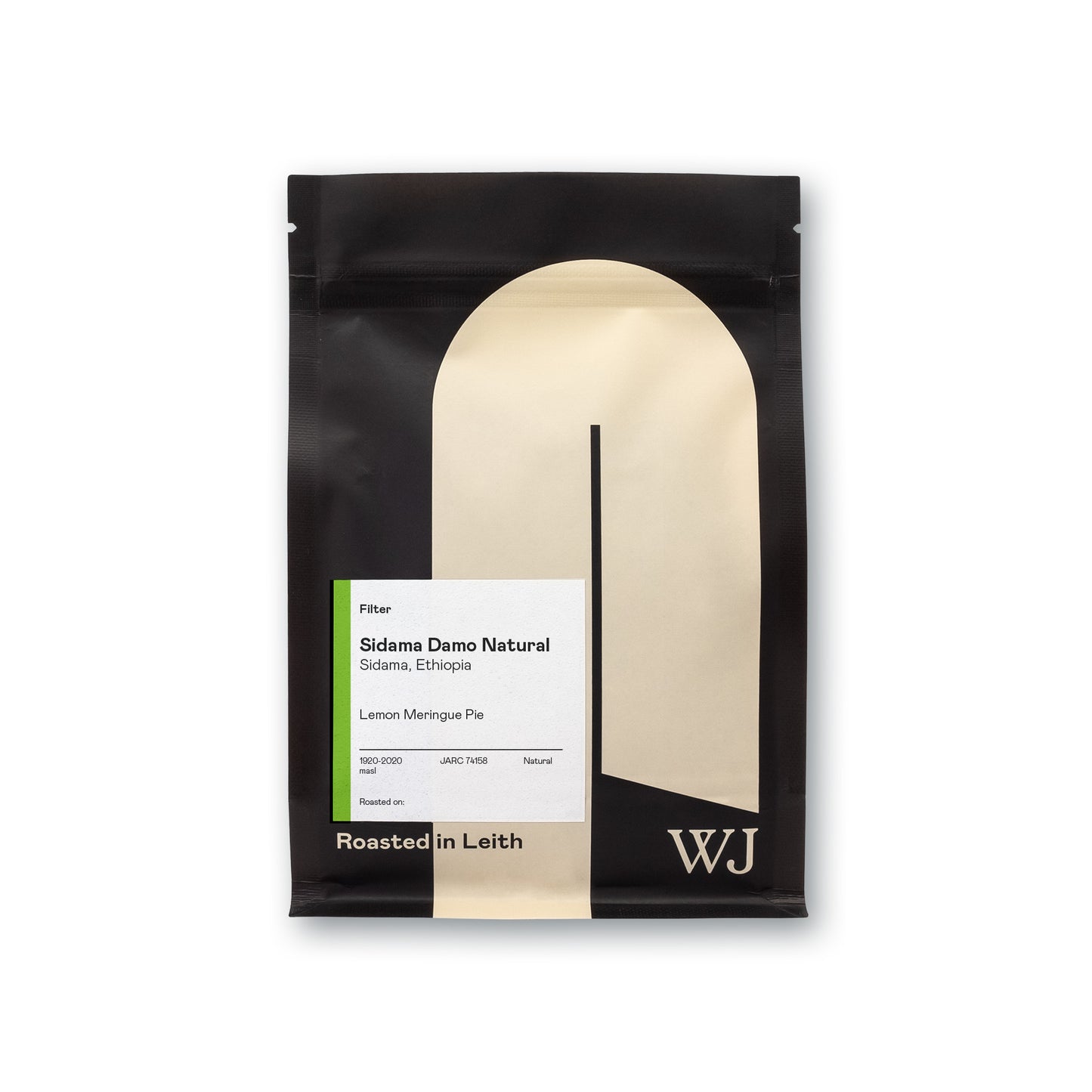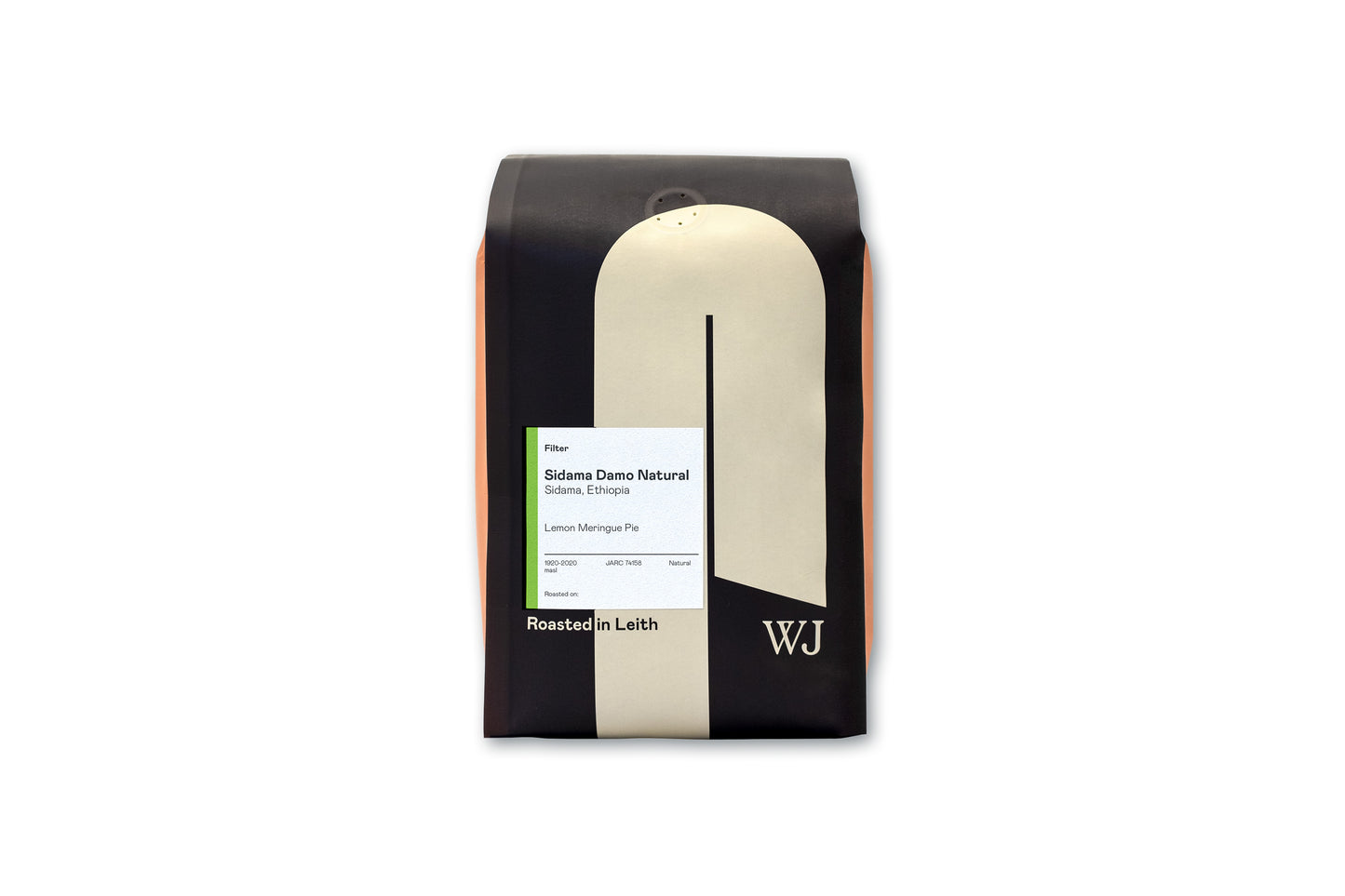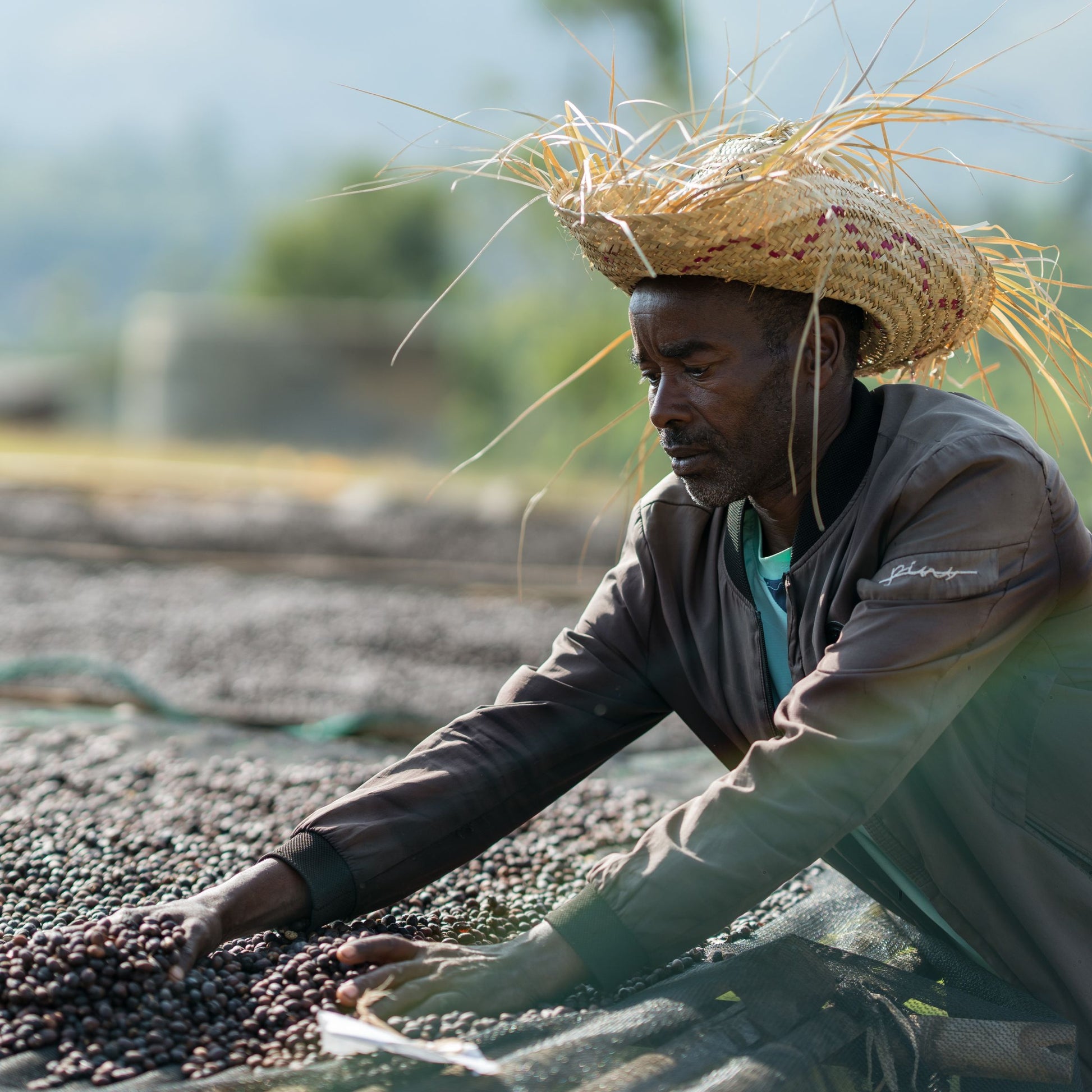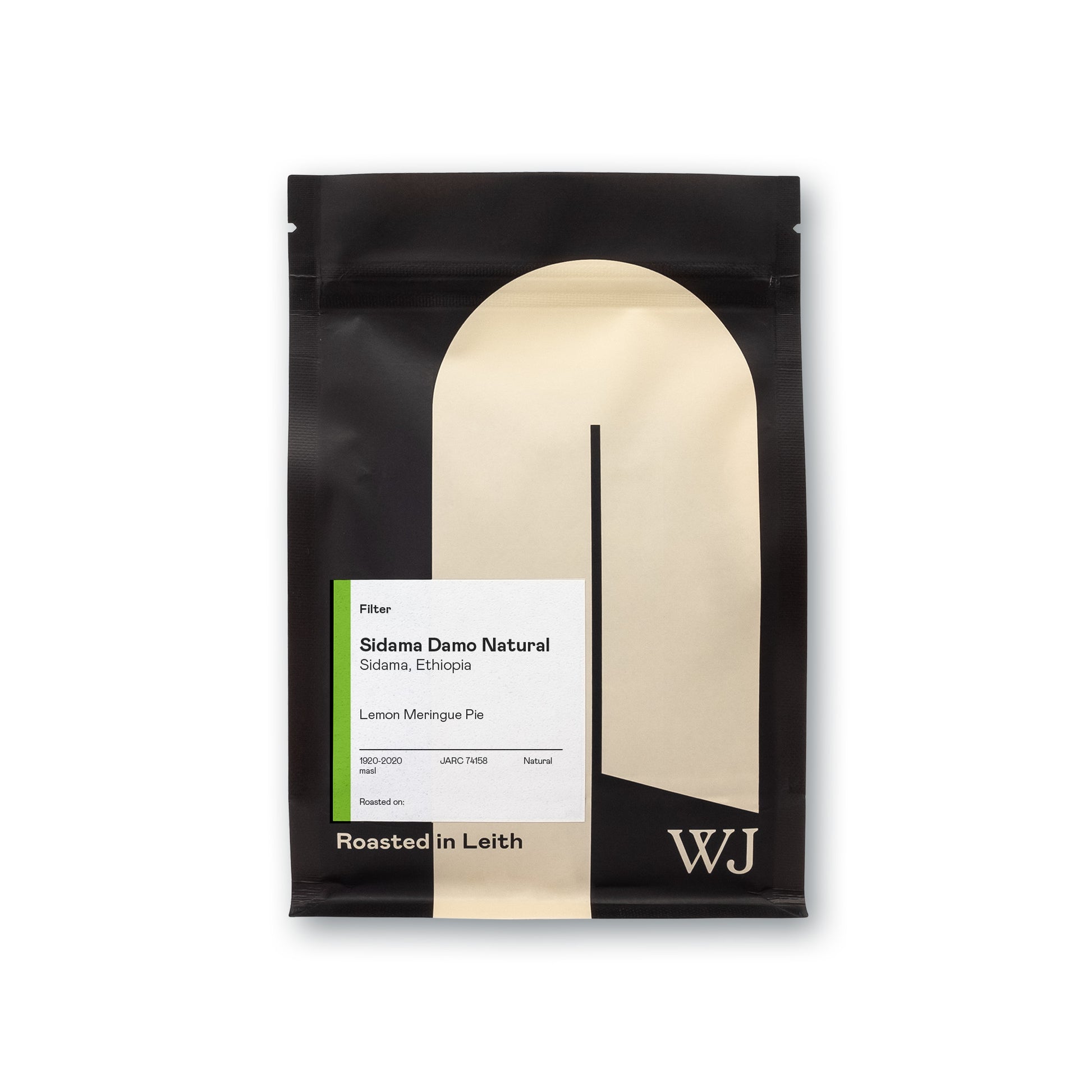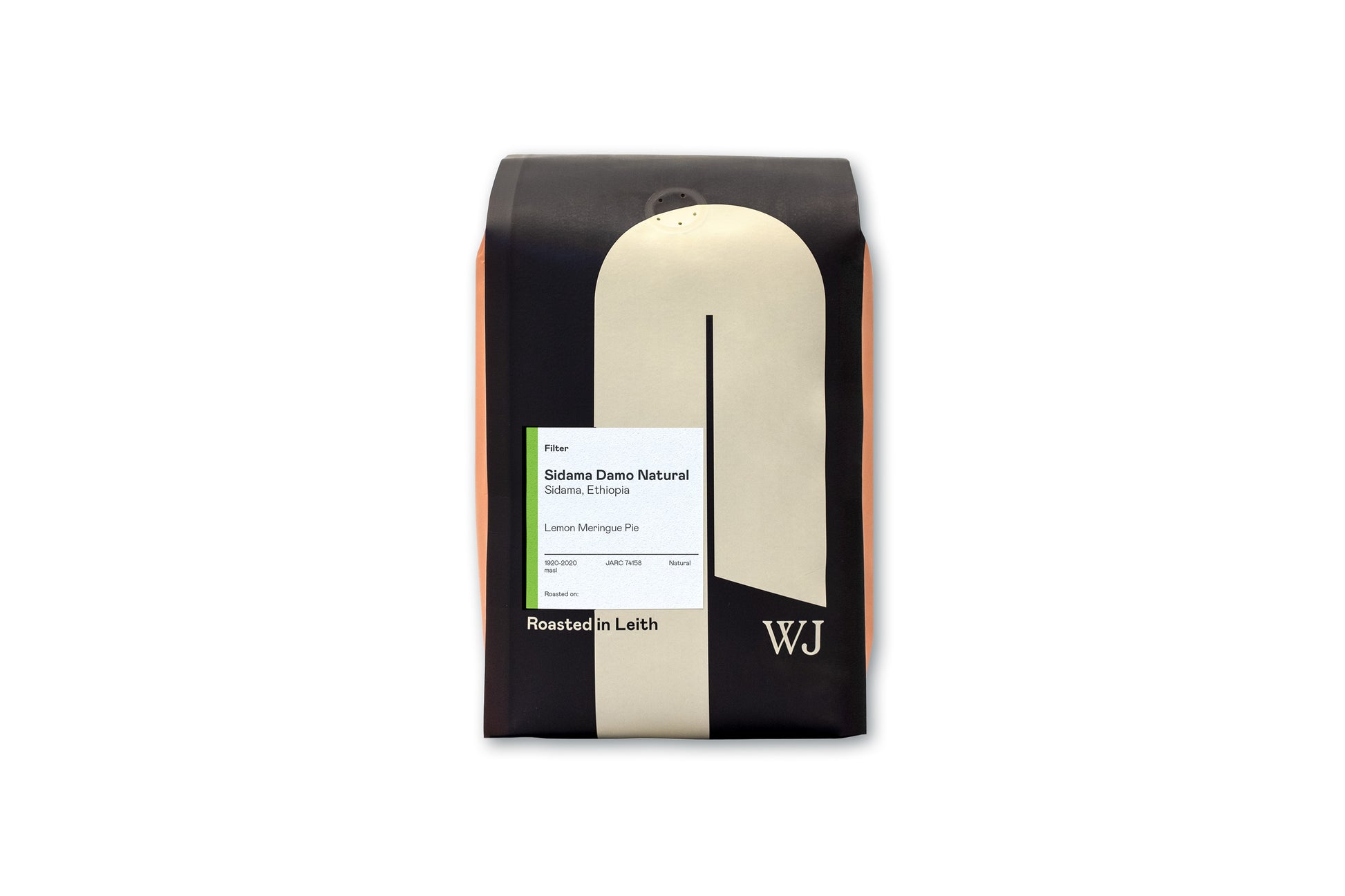Williams & Johnson Coffee Co.
Sidama Damo Natural, Ethiopia | FILTER
Sidama Damo Natural, Ethiopia | FILTER
Couldn't load pickup availability
Share
|
Tasting notes: |
Lemon Meringue Pie |
|
Origin: |
Ethiopia, Sidama |
|
Processing: |
Natural |
|
Altitude: |
1,920 to 2,020 metres above sea level |
| Varietal: | JARC Selection 74158 |
| Owner: |
Asefa Dukamo |
Located within the famous Sidama coffee-producing region of Ethiopia, the Damo Station works directly with just over a thousand smallholder producers to mill coffee for export—usually around four to six thousand tons of coffee each year. Daye Bensa, the exporting organization in Ethiopia, provides assistance to producers to sell their coffee.
The owner of the mill, Asefa Dukamo, was introduced to coffee at a young age, as his parents were cultivating coffee and other garden crops. In his teens, he began supplying neighbouring coffee washing stations with cherries purchased from nearby relatives and villagers, in addition to his own family’s farm. He realized that there were not many washing stations nearby, and he had to travel great distances to deliver his coffee. Thus began the idea to construct his own washing station to reduce travel time for coffee producers in his region.
In 1997, he constructed a washing station in the Girja village, less than one mile from his parents’ house. The following year, another washing station was built in Eltama, 30 km from Girja. Dukamo then moved to Daye town in the Bensa district, setting up the mother washing station called Qonqana. Eventually, a dry mill was added to provide facilities for naturally processed coffees.
Asefa’s younger brother, Mulugeta Dukamo, is the co-founder of Daye Bensa Coffee Exporters and played a key role in the expansion of the washing stations. Today, Daye Bensa operates in six woredas: Bensa, Bura, Chabe, Hoko (Girja), Aroressa, and Chire, with 20 washing stations, five mills, and three coffee farms.
As well as coffee, producers in the region plant other crops such as sugarcane, a variety of fruits, and Inset—a common indigenous plant that can be prepared as food in different forms.
Income from coffee is important but minimal for most farmers due to the small size of their farms. As such, inputs are minimal—most coffee grown in the region is 100% organic, though not certified due to high certification costs, as farmers simply do not have the money to apply chemical fertilizers, pesticides, or herbicides.
Producers working with the Damo Station face a number of obstacles when growing coffee. These include a lack of access to electricity, water, telecommunication, and road infrastructure. In addition, producers in the region suffer from limited exposure to knowledge on best coffee farming practices, which can directly impact yield and quality.
Fortunately, Daye Bensa has been working to combat these challenges, initiating their “Back to the Community” projects. So far, these have included building roads to connect villages, installing electricity transformers, and supplying producers with training in coffee plantation etiquette and better agricultural practices.
Daye Bensa has numerous goals outlined for the coming years, including improvements in agricultural training and the construction of a health facility for producers and their families. The impact of the Dukamo family on the region is significant due to the many farms they have been able to reach—educating youths about coffee production and connecting producers to global coffee markets.
The journey begins with only the ripest cherries being selectively handpicked. Once collected, the cherries are delivered to the mill to be sorted based on density and quality. This process is carried out by submerging the cherries in tanks and removing the floating cherries prior to drying.
The cherries are then dispersed on raised beds to dry slowly in the open sun for 16–19 days. Once the ideal moisture content is reached, the dried cherries are gathered, bagged, and rested prior to being delivered to the Daye Bensa dry mill to be hulled and prepared for export.
The Damo Station is one example of where producers bring coffee cherries to be processed and purchased. It is named after a nearby village well-known for coffee production.
